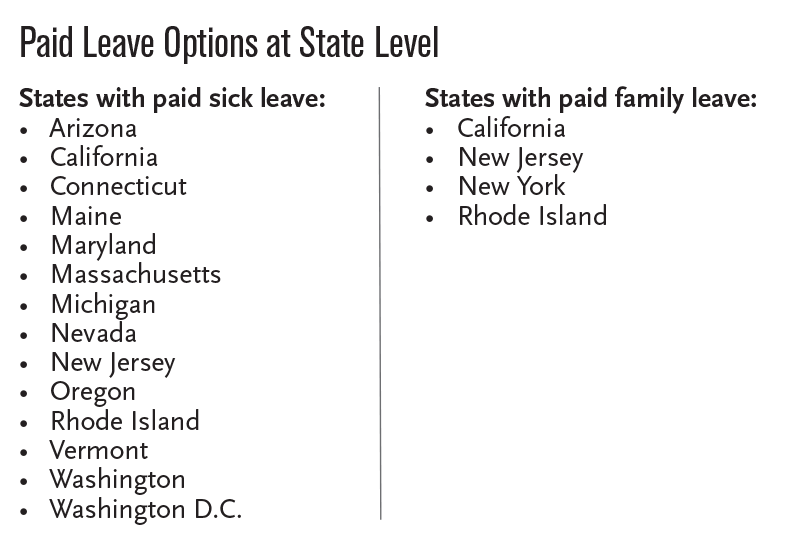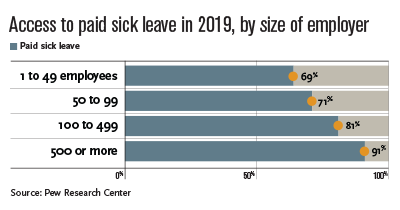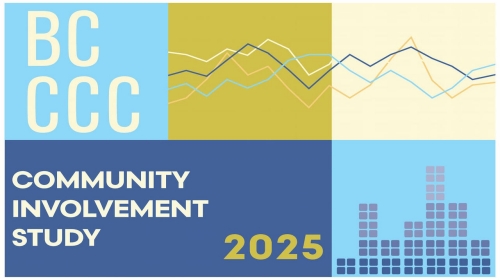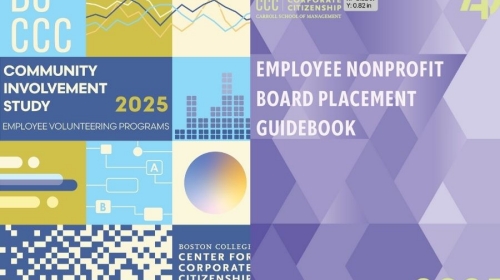WEBINAR: This webinar explores how to measure and communicate your organization's social impact with proven frameworks and strategies that matter to stakeholders.
COVID-19 Highlights the Importance of Paid Leave

As of the writing of this blog, there is good news out of China as the country experiences its first day without reporting new locally transmitted infections of COVID-19. As the virus continues to affect the United States and the rest the world, we are all engaging in social distancing, with millions working remotely to slow the spread.
For many, however, working from home isn’t an option—and in some cases going into the office isn’t either. With school closures, parents and caregivers are facing the choice of whether to stay home to look after children or lose essential pay. The same goes for those that care for elderly and/or vulnerable family members or dependents. And of course, organizations such as the WHO and the CDC are urging people to stay at home if they feel unwell.
It is during times like these that workers depend on paid sick time and/or paid family leave—however these benefits aren’t available to everyone. The United States is one of the only developed countries that doesn’t guarantee paid sick time or paid family leave. Though in some cases paid leave is mandated at the state level.

To address the unprecedented need for paid time off, Congress has passed H.R. 6201, the FAMILIES FIRST CORONAVIRUS RESPONSE ACT, which—for employees of firms with fewer than 500 employees--provides:
- Paid family leave for employees who can’t work because their minor child's school or child care service is closed due to a public health emergency. Workers who have been on the payroll for at least 30 calendar days will be eligible for paid family leave benefits, which will be capped at $200 a day (or $10,000 total) and expire at the end of the year.
- Eighty hours of paid-sick-leave benefits for several reasons, including if the employee has been ordered by the government to quarantine or isolate or has been advised by a health care provider to self-quarantine because of COVID-19. Employees could also use paid sick leave when they have symptoms of COVID-19 and are seeking a medical diagnosis, if they are caring for a relative who is in quarantine or isolation, or their child's school or child care service is closed because of the public health emergency. Paid-sick-leave benefits will be immediately available when the law takes effect and capped at $511 a day for a worker's own care and $200 a day when the employee is caring for someone else. This benefit will also expire at the end of 2020.
Of course, it must be noted that most large companies, and the majority of smaller ones, have offered at least some paid-time-off (PTO) to employees for decades. These are important components of benefits packages, and key to attracting and retaining top talent. As with many social issues, however, access to these benefits is affected socio-economic status.
According to the Pew Research Center, nearly three-quarters of private sector employees have access to some paid sick leave, however approximately only a quarter of workers in the lowest wage bracket ($10.80 or less an hour) have access to PTO for illness. The situation is much worse for paid family leave, with only 16% of private-sector employers offering it. 
So, what can corporate citizenship professionals do?
- First, review your current policies, and communicate what benefits are available. Even if employees don’t need the benefits now, you will engender good will by explaining what is available and how to access benefits.
- Work with your HR partners and leadership—is there something more you could be offering at this time? Companies such as Wayfair and Fifth Third Bank are offering paid time off to deal with the consequences of the virus and Target is waiving its absentee policy and offering quarantine and confirmed illness pay to those who are otherwise ineligible for their PTO benefits.
- Deploy an employee relief fund to enable your workforce to donate to colleagues in need.
- If necessary, consider a furlough. It may be that employees would be willing to take vacation and some unpaid time to be able to maintain benefits coverage rather than reductions in force down the road.
- Consider advocating for paid sick leave and family leave going forward. The complexities of COVID-19 are illustrating that business-as-usual policies may no longer be adequate to accommodate our changing world.
Remember that employees are looking to you for reassurance and guidance. This is an opportunity to differentiate your company as one that has a demonstrated concern for people. Communication is key to achieving trust. As always, we’re here to help you build the business case and address unique challenges. Reach out to us directly, subscribe to our knowledge products, browse our resource library, and connect to your peers digitally to share best practices and get up-to-the-minute advice.
Related Content
RESEARCH BRIEF - Researchers investigated how ESG activities help or hurt financial performance, using nine years of data from over 1,200 global companies.
RESEARCH BRIEF - Researchers analyzed 4 US energy exchange-traded funds (ETFs) over 15 years, including 2 dirty energy funds tracking fossil fuel companies and 2 clean energy funds tracking renewable energy companies.
RESEARCH BRIEF - Researchers conducted a survey, which measured perceptions of CSR and ethical leadership within the manufacturing and service industries.
WEBINAR: This webinar explores how corporate giving will be reshaped by the One Big Beautiful Bill. Hear directly from corporate citizenship leaders as they share innovative, real-world strategies that deliver impact for communities and results for business.
This study explores shifting trends in employee volunteering, corporate giving, and other means of corporate community involvement.
This guidebook offers insights on placing employees in nonprofit board service roles.
This study explores shifting trends in employee volunteering, corporate giving, and other means of corporate community involvement.








